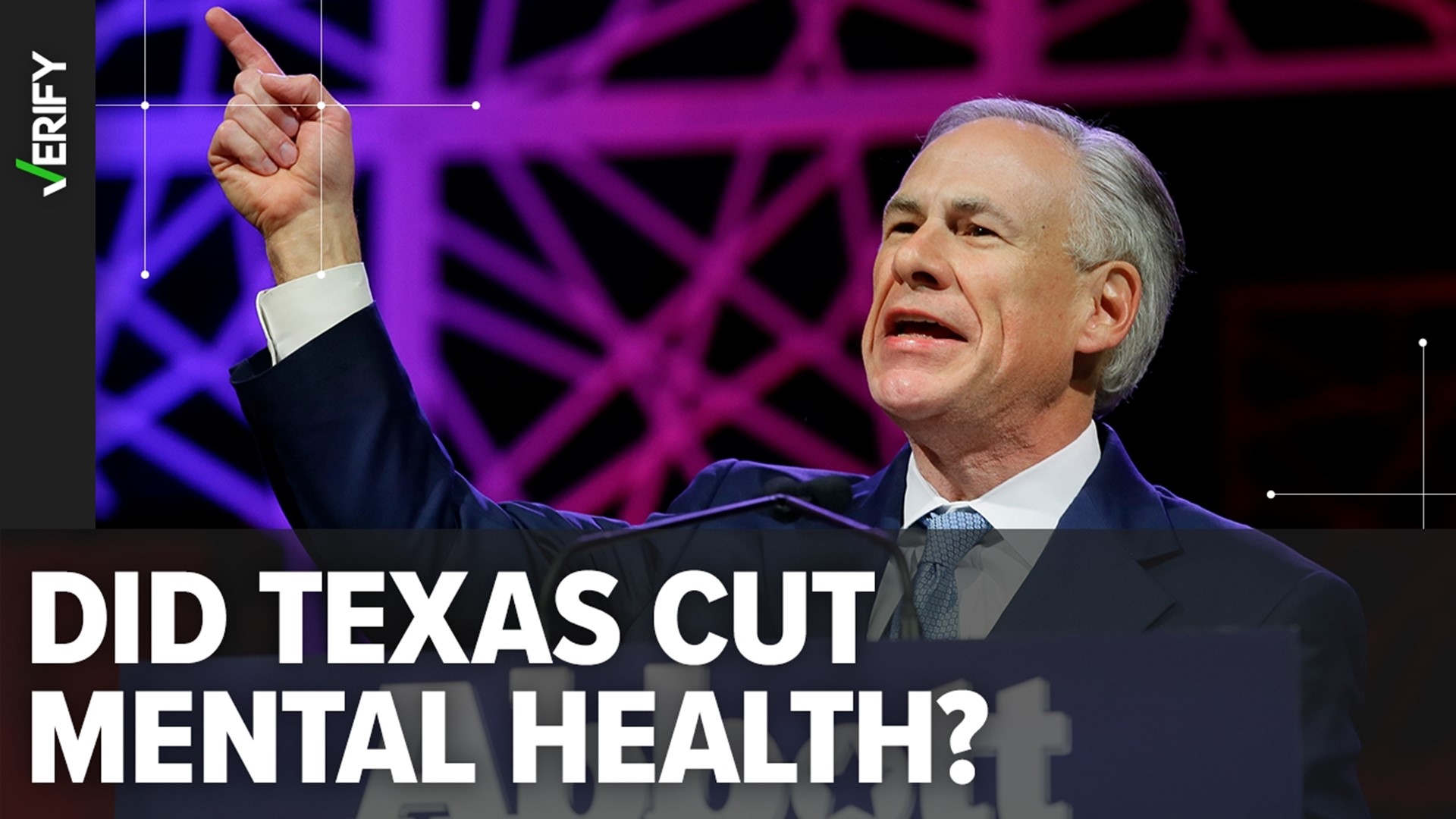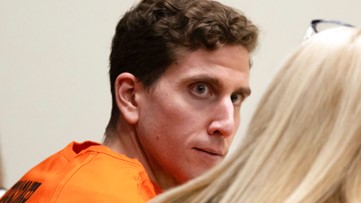A gunman killed eight people at an outlet mall in Texas on May 6, less than a year after a different shooter killed 21 people at an elementary school in the same state.
Gov. Greg Abbott (R-Texas) has resisted stricter gun laws, and following the mall shooting he turned his attention toward mental health services.
“What Texas is doing in a big-time way, we are working to address that anger and violence by going to its root cause which is addressing the mental health problems behind it,” he said in an interview with Fox News Sunday in the days following the attack in Allen, Texas.
WFAA reports the shooter was removed from the U.S. Army because of mental health concerns, according to an Army official. Investigators have revealed he had tattoos associated with neo-Nazi and other extreme right-wing groups, and posted frequently about such groups online.
Abbott’s call for a focus on mental health services provoked an immediate response from critics, who said Abbott has actually drastically reduced mental health spending in Texas during his tenure.
“Abbott cut funding for mental health services in Texas by $211 million,” read one tweet that’s been viewed nearly four million times.
THE QUESTION
Did Texas Gov. Greg Abbott cut mental health spending in the state by $211 million?
THE SOURCES
- Letter by Gov. Abbott ordering transfer of funds, dated April 29, 2022
- Letter by Gov. Abbott ordering transfer of funds, dated June 27, 2022
- Disaster proclamation issued by Gov. Abbott, dated May 21, 2021
- Texas Government Code
- Texas General Appropriations Act, 87th legislature
- Texas Senate Bill 1, 88th legislature
- Texas Health and Human Services
- Mark P. Jones, Ph.D., professor of political science at Rice University
THE ANSWER
In 2022, Abbott moved $211 million from the department of Health and Human Services to pay for Operation Lone Star, a border security effort. But it’s unclear whether any mental health services were affected, and the money was later replenished by federal funds.
WHAT WE FOUND
In 2021, Abbott issued a disaster proclamation for the state of Texas, saying it was necessary because of a surge of immigration at the border with Mexico.
Abbott then mobilized the state’s National Guard to act as border security, launching an endeavor called Operation Lone Star that has attracted national attention for its bold approach, as well as criticism for its results.
The operation has cost the state billions of dollars since its inception, with funding coming from several different sources.
The disaster proclamation gives the governor special powers, with the intent of hastening the state’s response to crisis events like hurricanes. One of those powers is the ability to transfer funds between state agencies, without needing approval from the full state legislature.
In 2022, Abbott used that power to funnel nearly half a billion dollars to Operation Lone Star. Of that, $210,730,028 came from the state department of Health and Human Services, which manages most of Texas’s mental and other health programs.
Roughly half of that money came from the department’s 2021 budget, and half from the 2022 budget. In 2021, the total agency budget was about $44 billion, and in 2022, just shy of $50 billion.
It’s unclear whether the transfer affected any mental health services in Texas. Abbott’s order claimed the agencies would remain “fully funded with other sources… thus this transfer will not affect any agency or program function,” but did not specify which sources. The governor’s office did not respond to VERIFY’s request for comment.
Mark P. Jones, a political scientist at Rice University in Texas, says the money was replenished with federal funds.
“Portions of the budget are moved like this all the time," he said.
The move allowed the already-appropriated state funds to be used for Abbott’s immediate goals at the border, then replaced once money from the COVID-19 recovery package became available.
Abbott has also used emergency powers to direct funds toward mental health services.
Following the attack at Robb Elementary School in Uvalde, he ordered a transfer of $11,475,000 from a general fund surplus to student mental health programs.
In his interview with Fox News Sunday, Abbott claimed mental health spending as a whole has dramatically increased during his time in office.
“We know that Texas had been lagging in mental health for years, and that's why over the past three sessions, we've added almost $25 billion to address mental health,” he said. “We're in the waning days of a session right now where we will be adding even more funding, about $3 billion to address mental health needs in the state of Texas, especially in rural Texas and especially for children in schools.”
He did not explain where those numbers came from, or provide sourcing for them, and his office did not respond to VERIFY’s request for a more detailed breakdown.
A look at the state’s last several budgets – as well as the one currently being considered by the state legislature – shows HHS funding levels have remained largely unchanged over the past several years while Abbott’s been in office. Some mental health programs have seen modest increases, while others have seen modest cuts.
"[Texas Republicans] haven't expanded mental health care services, but they haven't cut them either," Jones said. "The biggest critique of Texas Republicans would be their continued opposition to expanding Medicaid under the Affordable Care Act."
Texas is one of only 10 states that has not expanded access to Medicaid. Kaiser Family Foundation estimates that if it did – a move that would be mostly funded by federal dollars under Obamacare – more than 1.4 million Texans would gain access to coverage, including for mental health resources.
WFAA’s Matt Houston contributed to this report.










